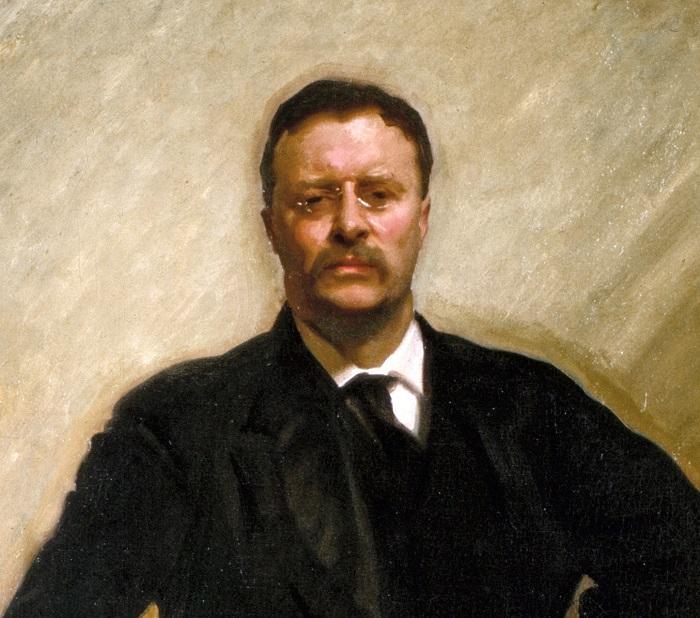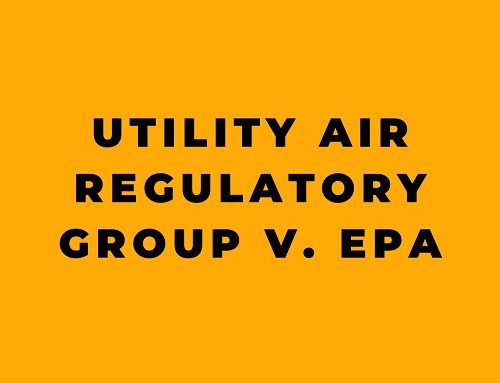Theodore Roosevelt, the 26th President of the United States, is widely regarded as one of the most charismatic and dynamic figures in American history. He led an extraordinary life, filled with adventure, accomplishment, and controversy. In this biography, we will take a closer look at the different stages of Roosevelt’s life and explore his many achievements, challenges, and contributions to American history and culture.
Early Life (1858-1879):
Theodore Roosevelt was born in New York City on October 27, 1858, into a prominent family. His father, Theodore Roosevelt Sr., was a successful businessman and philanthropist, and his mother, Martha Bulloch Roosevelt, was from a wealthy Georgia family. Roosevelt was a sickly child who suffered from asthma, but he was determined to overcome his physical limitations and become a strong and healthy adult. He was homeschooled by private tutors and showed a keen interest in natural history and outdoor activities. In 1876, he entered Harvard University, where he studied a wide range of subjects, including history, biology, and philosophy.
Theodore Roosevelt’s early life was marked by a combination of privilege and adversity. He grew up in a wealthy and influential family, but he also suffered from poor health and struggled to overcome his physical limitations. Despite his setbacks, he was a determined and curious child who had a love for the natural world and a passion for learning. His mother, a Southerner, instilled in him a love of the outdoors, while his father, a wealthy businessman and philanthropist, encouraged his intellectual pursuits. Roosevelt was a voracious reader, and he spent countless hours studying natural history, geography, and world affairs.
Roosevelt’s experiences as a sickly child helped shape his worldview and his values. He believed in the importance of hard work, physical fitness, and perseverance, and he saw these qualities as essential to personal and national success. He also developed a deep sense of empathy and compassion for those who were less fortunate, which would later influence his politics and his commitment to progressive reform.
Career and Family (1880-1898):
After graduating from Harvard in 1880, Theodore Roosevelt began his career in politics, working as a member of the New York State Assembly. He quickly gained a reputation as a reformer and a champion of progressive causes, advocating for civil service reform, labor rights, and other social and economic reforms. In 1884, he suffered a personal tragedy when his mother and wife both died on the same day, which led him to withdraw from politics and seek solace in the wilderness. He spent two years in the Dakotas, where he lived as a rancher and hunter, and where he developed a lifelong love of the outdoors and a deep appreciation for the natural world.
In 1886, Roosevelt remarried and returned to politics, serving as the President of the New York City Police Board and later as Assistant Secretary of the Navy under President William McKinley. In 1898, he led the Rough Riders, a volunteer cavalry unit, in the Spanish-American War, which brought him national fame and admiration. His experiences as a soldier and a leader helped prepare him for the challenges he would face as President.
Governor and Vice President (1899-1901):
Theodore Roosevelt was elected Governor of New York in 1898, and he quickly established himself as a progressive leader, promoting social and economic reforms and advocating for conservation and environmental protection. In 1900, he was chosen as the running mate of Republican presidential candidate William McKinley, and they won the election. Roosevelt became Vice President of the United States in March 1901, but his tenure was short-lived. In September of that year, McKinley was assassinated, and Roosevelt became the youngest President in American history at the age of 42.
As President, Roosevelt faced a number of challenges and opportunities, including the need to assert American power and influence in the world, to promote social justice and economic equality, and to protect America’s natural resources and wildlife. He pursued a bold and ambitious agenda of reform and progressivism, which would leave a lasting mark on American history and culture.
Presidency (1901-1909):
As President, Roosevelt pursued a broad agenda of reform and progressivism. He believed in the active role of government in promoting the general welfare and protecting the rights of workers and consumers. He established the first national parks and wildlife refuges, expanded the power of the federal government to regulate business, and promoted conservation and environmentalism. He also pursued an active foreign policy, asserting America’s role as a world power and advocating for the rights of smaller nations. He was a champion of progressive causes such as labor rights, women’s suffrage, and civil rights, but he also had a controversial record on race and imperialism.
Post-Presidency (1909-1919):
After leaving office in 1909, Roosevelt embarked on a series of adventures and challenges. He went on a year-long safari to Africa, explored the Amazon rainforest, and traveled extensively throughout Europe and the Middle East. He also remained active in politics, running for President again in 1912 as the candidate of the Progressive Party, but he lost to Woodrow Wilson. During World War I, he advocated for American intervention and criticized President Wilson’s policies. He also wrote numerous books, including a memoir and a history of the naval war of 1812. In 1918, his youngest son Quentin was killed in action during World War I, which was a devastating blow to Roosevelt and his family. In his later years, Roosevelt’s health declined, and he suffered from heart problems and other ailments. He died on January 6, 1919, at the age of 60.
Accomplishments
Trust-Busting
Theodore Roosevelt is perhaps best known for his efforts to break up monopolies and promote fair competition in business. As President, he used the power of the federal government to enforce antitrust laws and regulate big corporations. This policy, known as trust-busting, was a major achievement of his presidency.
In his first term, Roosevelt filed a landmark antitrust lawsuit against the Northern Securities Company, a railroad monopoly controlled by J.P. Morgan and other wealthy businessmen. The case went all the way to the Supreme Court, which ruled in favor of the government and ordered the breakup of the company. This decision set a precedent for future antitrust actions and signaled the government’s commitment to promoting competition and preventing the concentration of economic power.
Roosevelt’s trust-busting policies were controversial, and he faced opposition from business leaders and conservatives who saw his actions as an infringement on the free market. However, he believed that monopolies and trusts were a threat to democracy and the common good, and he was willing to use the power of the government to promote fair competition and protect consumers.
Conservation and National Parks
Another major achievement of Theodore Roosevelt’s presidency was his commitment to conservation and environmental protection. He believed that the natural world was a national treasure that needed to be preserved for future generations, and he took bold steps to protect America’s wilderness and wildlife.
Roosevelt established the United States Forest Service and signed the Antiquities Act, which gave the president the power to create national monuments. He also designated 150 national forests, 51 federal bird reserves, 4 national game preserves, 5 national parks, and 18 national monuments. His efforts to protect America’s natural resources set a precedent for future conservation efforts and helped create a legacy of environmental stewardship.
Roosevelt’s conservation policies were not without controversy, and he faced opposition from some business interests and Western states. However, he believed that preserving America’s natural beauty and resources was essential to the country’s long-term prosperity and well-being. Today, millions of Americans enjoy the benefits of his conservation legacy, including the iconic Yellowstone National Park, which he helped establish in 1872.
Foreign Policy and Diplomacy
Theodore Roosevelt was a skilled diplomat and a forceful advocate for American power and influence in the world. He believed that the United States had a special role to play in global affairs, and he pursued an active foreign policy that promoted peace, stability, and democracy.
One of his most significant achievements in foreign policy was his role in negotiating the end of the Russo-Japanese War in 1905. Roosevelt saw the conflict as a threat to world peace and worked tirelessly to broker a peace agreement between the two nations. He was awarded the Nobel Peace Prize for his efforts, becoming the first American to receive the honor.
Roosevelt also pursued an aggressive policy of expansion and intervention in Latin America and the Caribbean, often using military force to assert American interests. He oversaw the construction of the Panama Canal and played a key role in establishing the Roosevelt Corollary to the Monroe Doctrine, which gave the United States the right to intervene in the affairs of other countries in the Western Hemisphere. While these policies were controversial, Roosevelt believed that they were necessary to protect American security and promote democracy and stability in the region.
Progressive Reforms
As a progressive reformer, Theodore Roosevelt was committed to promoting social justice, economic equality, and political democracy. He believed that the government had a responsibility to protect the rights of workers and consumers, and he pursued a wide range of reforms to address these issues.
Roosevelt supported a number of progressive policies, including the establishment of the U.S. Department of Labor, the regulation of child labor, and the creation of a national health insurance program. He also championed women’s suffrage, the direct election of senators, and the establishment of a graduated income tax. He used the power of the presidency to promote these causes and to pressure Congress to pass progressive legislation.
One of Roosevelt’s most significant achievements in the area of progressive reform was the Pure Food and Drug Act of 1906. This law required manufacturers to label their products with accurate information about their ingredients and to meet minimum standards of quality and safety. It was the first federal law to regulate food and drugs, and it was a major victory for consumer protection.
Roosevelt’s progressive policies were not universally popular, and he faced opposition from business interests and conservative politicians. However, he believed that the government had a responsibility to protect the public welfare and to promote the general good, even if it meant challenging powerful interests and entrenched ways of thinking.
Military Leadership
Before becoming President, Theodore Roosevelt was a hero of the Spanish-American War, leading a volunteer cavalry unit known as the Rough Riders. He was also an advocate for military preparedness and a strong national defense, believing that the United States needed to be ready to protect its interests and values in a rapidly changing world.
As President, Roosevelt oversaw a significant expansion of the U.S. military, including the establishment of the modern navy and the creation of the Army War College. He also played a key role in the development of the U.S. military’s first general staff system, which improved the coordination and effectiveness of military operations.
Perhaps his greatest military achievement, however, was his role in negotiating the end of the Russo-Japanese War. As a mediator, he helped bring the two sides together and negotiated a peace treaty that earned him the Nobel Peace Prize. His efforts helped establish the United States as a major player on the world stage and demonstrated his skill as a diplomat and strategist.
Theodore Roosevelt’s military leadership helped establish the United States as a major world power and set the stage for American dominance in the 20th century. His commitment to military preparedness and peace through strength has had a lasting impact on American foreign policy and national security.
Legacy and Impact:
Theodore Roosevelt’s legacy is complex and multifaceted. He is remembered as a great leader, a champion of progressivism, and a forceful advocate for American power and influence in the world. He was a masterful politician and communicator, who inspired generations of Americans with his energy, enthusiasm, and moral conviction. He was also a controversial figure, with a record that included both admirable achievements and questionable decisions. His policies on race, imperialism, and foreign policy have been the subject of ongoing debate and criticism.
Despite these controversies, Roosevelt’s impact on American history and culture is undeniable. His vision of a strong and dynamic nation, committed to social justice and environmental protection, helped shape the course of the 20th century. His reforms and initiatives laid the groundwork for the modern welfare state and the environmental movement. He was a pioneer of modern presidential leadership, using the power of his office to promote the public good and advance the national interest.
Theodore Roosevelt was a complex and multifaceted figure who left an indelible mark on American history and culture. His achievements in the areas of trust-busting, conservation, foreign policy, progressive reform, and military leadership demonstrate his vision, courage, and commitment to the common good. Despite his flaws and controversies, he remains one of the most popular and revered Presidents in American history, and his legacy continues to inspire and challenge us today.
References:
- https://www.whitehouse.gov/about-the-white-house/presidents/theodore-roosevelt/
- https://www.britannica.com/biography/Theodore-Roosevelt
- https://www.nps.gov/articles/000/theodore-roosevelt-biography.htm
- https://en.wikipedia.org/wiki/Theodore_Roosevelt
- https://www.biography.com/political-figures/theodore-roosevelt
- https://www.history.com/topics/us-presidents/theodore-roosevelt
- https://www.whitehousehistory.org/bios/theodore-roosevelt
- https://www.theodoreroosevelt.org/content.aspx?page_id=22&club_id=991271&module_id=339332
- https://commons.wikimedia.org/wiki/File:Theodore_Roosevelt_by_John_Singer_Sargent,_1903.jpg










